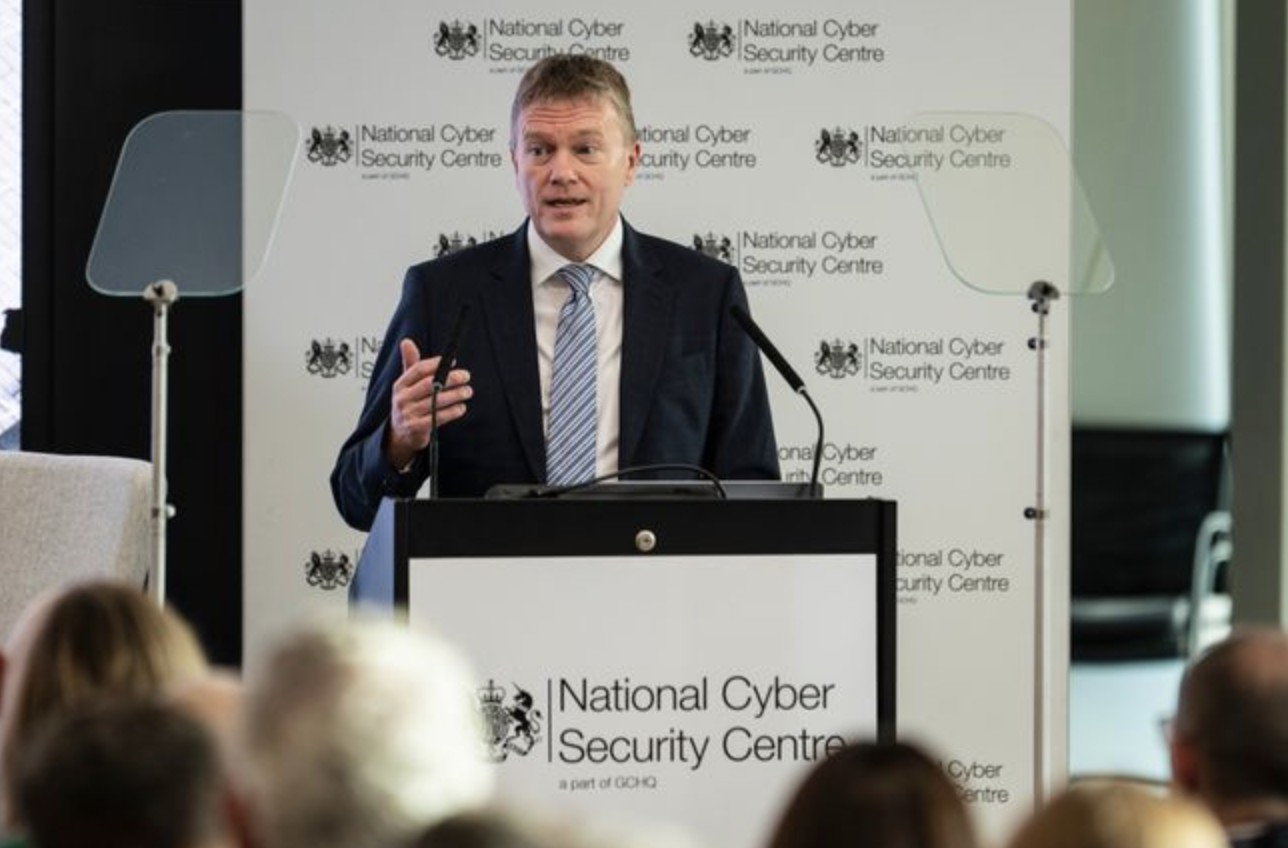How should the UK respond to "underestimated" cyber-threat?
Security professionals speak out as NCSC boss Richard Horne warns about the severity of the threat facing Britain.

Dr Richard Horne, boss of GCHQ's National Cyber Security Centre (NCSC), has warned that the UK has "underestimated" the scale of the threat posed by digi-criminals and state-backed threat actors.
In a speech at the launch of the NCSC’s eighth Annual Review, Horne blew his trumpet about an ongoing "contest for cyberspace" fought between "those of us who are using technology to conduct and improve our lives and prosperity and those people who seek to use our digital dependency against us".
He claimed that Britain has one of the world's "most advanced digital economies" (which may be news to Britons bogged down by a poor phone signal, stuck in 5G notspots or still not connected to high-speed broadband).
The UK is "underpinned by online infrastructure which we all rely on to keep the lights on and the water running, to improve our public services, to keep businesses running, and to drive our growth and prosperity", Horne said.
"Those critical systems and services make attractive targets for hostile states and malicious actors in cyberspace," he added. "They are increasingly using our technology dependence against us, seeking to cause maximum disruption and destruction."
Horne said the Synnovis attack "showed us how dependent we are on technology for accessing our health services," and the British Library hack was a reminder that tech also enables "our access to knowledge".
The NCSC chief singled out China and Russia as threats, warnings that "cyber-attacks are increasingly important to Russian actors" along with "sabotage threats to physical security".
Meanwhile, China "remains a highly sophisticated cyber actor with increasing ambition to project its influence beyond its borders".
"We believe the severity of the risk facing the UK is being widely underestimated," Horne continued. "There is no room for complacency about the severity of state-led threats or the volume of the threat posed by cyber-criminals."
His warning echoes comments from Pat McFadden, Chancellor of the Duchy of Lancaster, who last week warned that cyber-attackers from Iran, Russia, North Korea and other hostile nations are "becoming increasingly emboldened and aggressive, testing our collective security on a daily basis".
Industry views on an expanding threat
Matthew Hodgson, CEO & Co-Founder of Element, a UK-based end-to-end encrypted messaging service used by the US Navy, Ukrainian Army, the UK MoD, United Nations and NATO, told Machine: “The security chief's warning that the UK is underestimating cyber threats from hostile states and criminal gangs reiterates a critical vulnerability in our digital society. As cyber attacks become more sophisticated, targeting critical national infrastructure and sensitive intellectual property, the need for comprehensive and proactive digital security measures has never been more urgent.
"National interests, economic competitiveness, and public trust all hang in the balance. To bolster its defences, the UK government must pivot away from centralised unencrypted systems controlled by foreign entities and prioritise digital sovereignty.
"Embracing decentralised architectures, which distribute control and data across multiple nodes, would empower the UK to operate and safeguard its own communication infrastructure. Such systems, built on open protocols and end-to-end encryption, offer resilience against single points of failure and external manipulation."
He said these technologies will allow the UK to "maintain control over its sensitive communications, reduce vulnerability to foreign influence, and significantly enhance its national security posture".
AI-enabled threat actors
Steve Bradford, Senior Vice President EMEA at SailPoint, pointed out that criminals are " now regularly using AI to ramp up the frequency and severity of attacks".
"Many of these, however, still come down to some sort of compromised identity, with user access points often targeted," he said. “As the UK faces a “widening gap” in its ability to combat these threats, which increasingly target supply chains, organisations must ensure they are implementing security across the entire ecosystem.
"Technology such as identity security ensures employees, including those from third-party organisations who have access to systems, are only granted the necessary permissions to fulfil their specific roles and responsibilities, no more, no less. This helps to close any gaps in cyber security posture and enables organisations to quickly spot and stop any compromised access in its tracks.
“Training is also essential. Ensuring everyone, at every link in the supply chain, is equipped with the knowledge of how to recognise and react in the face of an attack, goes a long way in preventing bad actors from surreptitiously gaining access.”
Legacy tech and an evolving threat
Jamie Moles, Senior Technical Manager at the Network Detection and Response provider ExtraHop, also told us: “It’s great to see more people finally paying attention to the massive gaps in cybersecurity and the NCSC highlighting the urgency of the issue. But recognising the problem is only half the battle. Awareness alone doesn’t stop ransomware or defend critical infrastructure - what’s missing is decisive action and serious investment in both technology and expertise.
"Too many organisations are still relying on outdated tech and failing to patch known vulnerabilities, leaving themselves wide open. Incident response teams and threat intelligence capabilities also need to be bolstered to stay ahead of increasingly sophisticated attackers.
"Cyber threats evolve faster than policies and budgets. If companies and governments don’t prioritise proactive measures, such as enhancing network visibility to detect intrusions early and ensuring systems are resilient enough to recover from attacks, we’ll keep playing catch-up while our adversaries exploit the gaps. It’s time to move beyond talking points and take the technical steps necessary to secure our future.”
Have you got a story to share? Get in touch and let us know.




